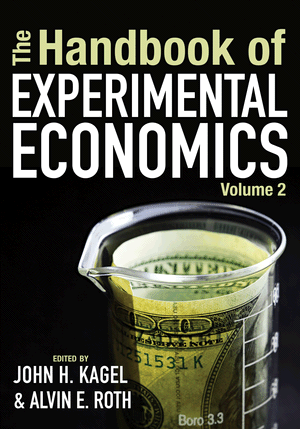A surrogacy contract often requires a judge's approval for the birth certificate, and such a case went radically bad in Wisconsin where paid surrogacy is legal, but nevertheless regarded as repugnant in some quarters:
These Two Dads Almost Lost Their Son In A Bizarre Surrogacy Case
Jay Timmons and Rick Olson thought they’d have no legal trouble using a surrogate to birth their son. Then a rogue judge in Wisconsin pulled them into an 11-month legal battle.
"Jay Timmons and Rick Olson, a married gay couple from Virginia, didn’t think they’d have any trouble becoming the legal parents of the baby boy who their surrogate, a Wisconsin woman, delivered for them last year.
They had gotten the frozen embryo that became their son as a gift from straight friends whose in vitro fertilization created more embryos than they could use.
They had chosen a Wisconsin surrogate specifically because the state’s Supreme Court had upheld surrogacy, and other same-sex couples had had smooth sailing there. And by just about any measure, the two intended fathers were prime parent material: They both had good jobs, they had been together for 25 years, and they were already raising two daughters from previous surrogacies.
But their careful plans went awry the month before their son, Jacob, was born, when their effort to be named his legal parents landed before a conservative judge who saw surrogacy as a form of human trafficking. Over the next 11 months, the couple’s bizarre legal battle cost more than $400,000 and kept them in constant terror of losing their son.
...
"But the Wisconsin case is likely unprecedented, legal experts say, in that
the surrogate, her husband, and the intended parents were all happy with their arrangement. Only the judge was not.
...
"
Dane County Circuit Court Judge Jim Troupis, appointed by Gov. Scott Walker last year, opened his March opinion with the statement, “Human trafficking comes in many forms.” And although he went on to describe the two dads as a “spectacular set of parents’’ who would raise the child “in a nurturing environment with unmatched financial resources,’’ he made it clear that he was bothered by the fact that the couple had paid a woman to carry a baby who was not related to them.
“The fundamental fact remains that another couple has provided the child as a gift to the petitioners, and the child has no genetic relationship to the petitioners,’’ Troupis wrote. “In order to bring the child into world, the petitioners have paid a significant amount of money. Without those payments there would be no child.’’
...
"There is no federal law on the subject, and state laws vary enormously. California, for example, where Timmons and Olson hired the surrogates who delivered their two daughters, is the center of the nation’s surrogacy industry, thanks to a friendly state law.
But most states don’t have any surrogacy laws on the books. Some simply refuse to enforce surrogacy contracts. Others, including Virginia, don’t allow surrogacy unless at least one of the intended parents has a genetic connection to the baby. New York and Washington allow only unpaid, or “altruistic” surrogacy, and Michigan has criminal penalties for all types.
...
"Despite the legal limbo, because of the rise of in vitro fertilization — now responsible for nearly 2% of US births — and the legalization of same-sex marriage, demand is also rising for surrogates. And, partly to avoid legal snags, these women are generally “gestational surrogates,” meaning that they carry embryos that are not genetically related to them. According to the CDC, there were 3,432 gestational surrogates in 2013, up from 727 in 1999.
...
"Although the case was in Dane County, the liberal stronghold that contains Madison, Judge Troupis appointed as the child’s legal guardian Mark Knutson, a lawyer 70 miles away whose radio broadcast, The Word on The Law, aims to reconcile God’s word with the law. Knutson, in turn, brought in another lawyer from his firm, Erik Krueger, who had worked with Liberty Counsel, a group that defends public officials like Kim Davis, the Kentucky county clerk who refused to issue marriage licenses to same-sex couples.
...
"In November, Knutson filed a 45-page report to Judge Troupis, calling for more court oversight of surrogacy cases and arguing that rubber-stamping a gestational surrogacy contract made by two men with no genetic connection to the child would open the way to a dangerous expansion of the concept of parenthood.
Such
surrogacy contracts, his report said, broker pregnancy, commodify children, and meet the needs of wealthy intended parents at the expense of the children involved.
...
"In his March decision, Judge Troupis seemed to rely on many of Knutson’s arguments. He terminated the surrogate’s maternal rights and gave the Virginia men only temporary custody, technically leaving Jacob an orphan.
...
"The Troupis decision left Timmons and Olson at a crossroads: They could continue to appeal in Wisconsin, or take a different route, pursuing an adoption in their home state of Virginia. While they weighed these options from their home in Virginia — while caring for Jacob and their young daughters — they had a lucky break: Judge Troupis resigned May 2, to try, unsuccessfully, for a seat on the Wisconsin Supreme Court.
Timmons and Olson had already moved to reopen and reconsider Judge Troupis’s ruling, but
with the judge’s resignation, their case was transferred to yet another judge, Peter Anderson, who overturned Judge Troupis’s “faulty’’ opinion, which he criticized for using language that was “unduly harsh and kind of weird.’’
********
HT: Kim Krawiec















